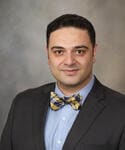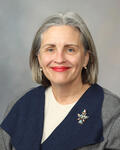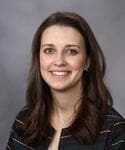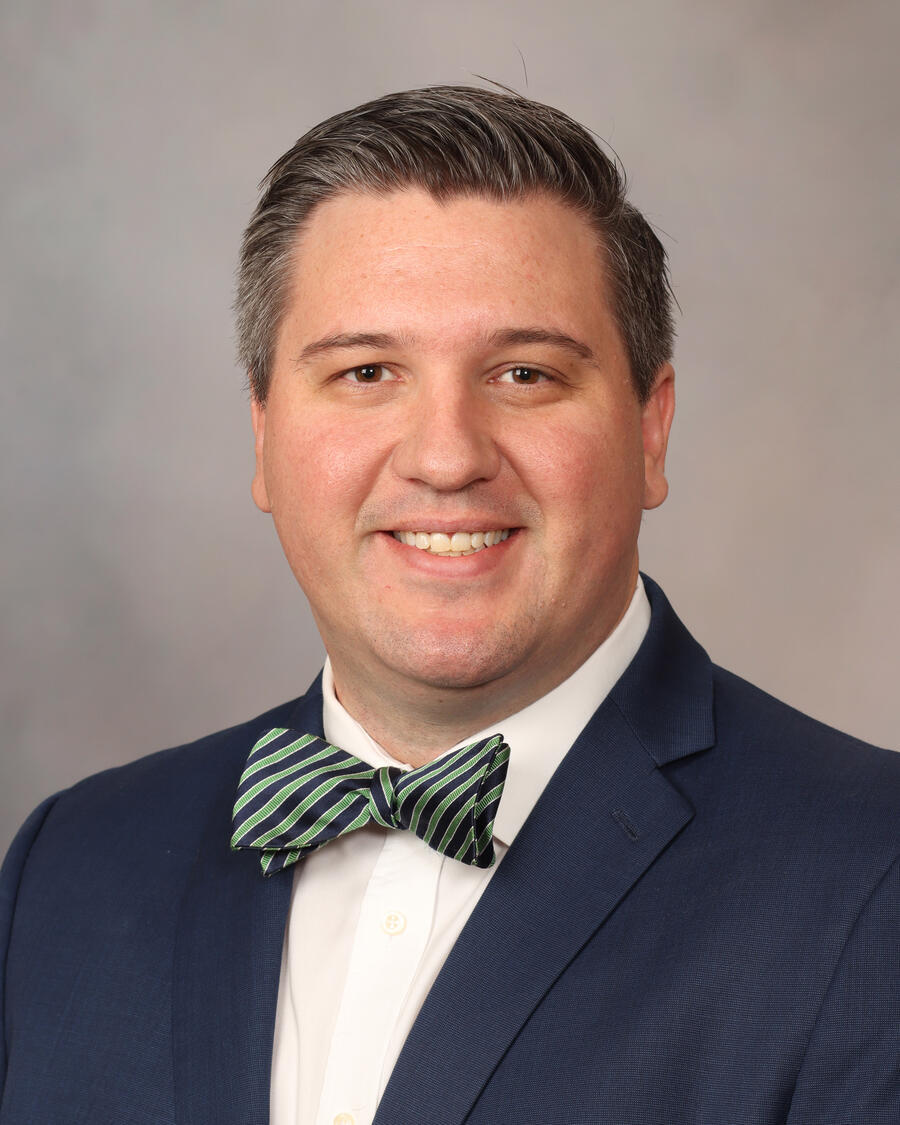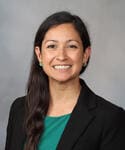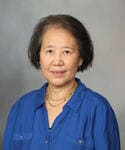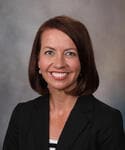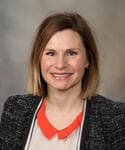Meet The Faculty
In addition to caring for patients in clinical practice, Mayo Clinic's faculty is committed to teaching and facilitating the growth of medical knowledge. Many of our faculty members have published and lectured extensively and are highly regarded in their fields.
You work closely with these individuals throughout your training in the Reproductive Endocrinology and Infertility Fellowship.
|
|
Zaraq Khan, M.B.B.S. Division Chair Hometown: Peshawar, Pakistan, and London, UK Subspecialty: Reproductive endocrinology, minimally invasive gynecologic surgery Hobbies: I enjoy traveling in general and hiking in remote areas of the world in particular. Also, creating/mixing music and curating craft cocktails. Why Mayo: Mayo Clinic continues to be an amazing place to practice medicine. The collaborative nature of work and living up to its motto of the “needs of the patient come first” makes this a truly remarkable place to learn and practice medicine. |
|
|
Ebbie Stewart, M.D. Hometown: Spartanburg, SC Subspecialty: Reproductive endocrinology and infertility, fibroids Hobbies: Traveling, gardening, cooking, and reading. Why Mayo: The unparalleled research opportunities. |
|
|
Ali Ainsworth, M.D. Director of Patient Experience Hometown: St. Louis, MO Subspecialty: Reproductive endocrinology and infertility, patient experience, fertility at home Hobbies: Spending time with my family, reading, yoga, and spending time outside. Why Mayo: I chose Mayo and have continued to choose Mayo for the breadth of educational experiences and research opportunities — all under the supervision of experts in the field who create a safe and supportive environment to learn and grow. |
|
|
Michael Neblett II, M.D. Hometown: McEwen, TN Subspecialty: Reproductive Endocrinology and Infertility, Reproductive Surgery Hobbies: Golfing, watching college football, weekend home projects, exploring parks and lakes, and weekend exploring trips to nearby towns with my wife, daughter, and Goldendoodle. Why Mayo: Mayo Clinic offers exceptional opportunities to care for patients with infertility and perform reproductive surgery using state-of-the-art equipment and facilities. The institution’s unwavering commitment to excellence in patient care, guided by the principle of “the needs of the patient come first,” deeply resonates with me. With abundant resources and a strong culture of interdepartmental collaboration, Mayo provides unmatched research opportunities. The continued mentorship from my colleagues has been invaluable. Lastly, Rochester’s family-centered environment makes it a wonderful place to live and thrive. |
|
|
Chandra Shenoy, M.D.
Program Director Hometown: Lawrence, KS (Rock Chalk Jayhawk!) Subspecialty: Reproductive endocrinology and infertility, third-party reproduction medical director Hobbies: I love to cook, hike, travel, explore, adventure, practice yoga, invest in my local community, and play with new technology. Why Mayo: I stayed at Mayo after completing my fellowship here because it felt like more than a job. The people here were truly invested in helping to shape me, not only as a reproductive endocrinologist, but as an internationally known expert, teacher, and researcher. The mentorship has been incredible as a trainee and into my faculty years. |
|
|
Yulian Zhao, M.D., Ph.D. IVF Lab Director Hometown: Harbin, China Subspecialty: REI-assisted reproductive technology Hobbies: Gardening, traveling, playing musical instruments, and practicing meditation. Why Mayo: I appreciate Mayo’s team approach to patient care and everything else; mission and values are truly reflected in daily practice and operations. |
|
|
Jessica Bleess, P.A.-C. Physician Assistant Hometown: Fergus Falls, MN Subspecialty: Third-party reproduction Hobbies: I love to run, organize, travel, host, and drive my kids from one sporting event to another in my sweet minivan. Why Mayo: Teamwork! Not only do I get to work with some of the best and brightest physicians in the world, but I am surrounded by amazing nurses, ultrasonographers, embryologists, and support staff. |
|
|
Nicole Callahan, APRN, C.N.P., M.S. Nurse Practitioner Hometown: Durand, WI Subspecialty: Reproductive surgery Hobbies: Lake life (boating, fishing, grilling), garden, and endless DIY projects that I like to start and rarely finish. Why Mayo: Support. There are brilliant minds at every corner to ask questions and learn. Team-focused mentality offers patients the best care. |
Advisers and mentors
Faculty advisers are available to provide comprehensive educational advice and personal support. You meet with your adviser monthly throughout the program to review your progress and career goals and ensure that your educational needs are being met. Your adviser may serve as a contact point for introducing you and your family to Rochester, Minnesota, and the Mayo Clinic system.
The consultant staff maintains close, personal working relationships with all departmental fellows. Throughout your fellowship training, you receive mentoring and guidance, with a goal of maximizing your experiences during the successful completion of the fellowship.
Visiting professors
Many prominent professors visit Mayo Clinic each year. They present their work during lectures, participate in hospital rounds, and have informal discussions with trainees. You are encouraged to take full advantage of these educational opportunities.
/0x0:512x512/prod01/channel_2/media/mccms/content-assets/academics/residencies-and-fellowships/reproductive-endocrinology-and-infertility-fell-mn/department-and-faculty/rei-video-143532_1255653_02-512x.jpg)
Video: Why Mayo with Dr. Ainsworth
1:20
Facilities
Facilities dedicated to reproductive endocrinology at Mayo Clinic's campus in Rochester, Minnesota, offer the resources you need for virtually any clinical or research interest in this field of study.
Clinical facilities for reproductive endocrinology
Outpatient clinical facilities for reproductive endocrinology were built in 2018 and include examination rooms, consultation rooms, an ultrasound suite, physician offices, additional space for nursing and secretarial support, and procedure space adjoining the embryology lab. The fellows share a room with private office spaces for each fellow.
The Reproductive Surgery practice has access to both inpatient operating rooms within the Rochester Methodist Hospital and outpatient operating rooms in the outpatient Gonda building. There are cases 1-3 days per week.
Laboratories for assisted reproduction
The Mayo Clinic In Vitro Fertilization (IVF) Laboratory annual throughput is currently 420 fresh IVF and 320 frozen embryo transfer cycles. These numbers are on an upward trend. The laboratory contains equipment essential for the preparation of stock solutions and culture media, quality control testing, neat and post-wash semen analysis, sperm processing for IVF, and embryo and sperm cryopreservation.
The embryo culture room contains lab equipment essential for follicular aspirate inspections, oocyte maturity evaluation, oocyte, and embryo culture and coculture, oocyte insemination with fertilization assessment, time-lapse incubation, gamete micromanipulation (intracytoplasmic sperm injection, assisted hatching, embryo biopsy), and embryo cryopreservation and thawing.
